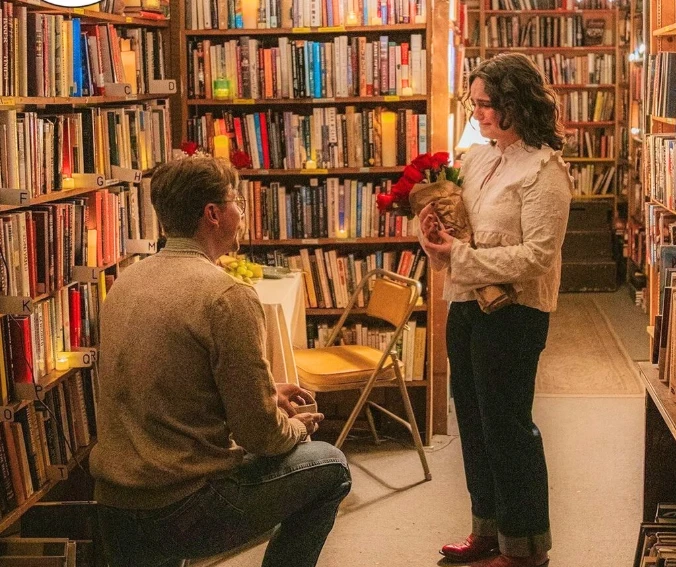When life feels overwhelming, a book brings calm. Discover how reading soothes digital fatigue and helps you find joy again.
Ancient Mesopotamia, the world’s earliest civilization, is said to be the birthplace of the origins of writing. What were once age-old, carved symbols of goats and grain, transformed again and again, evolving into stories and poems, and literature. The Epic of Gilgamesh is largely considered the first beginning of literature, an epic written in Mesopotamia that detailed the story of King Gilgamesh, son of a goddess, who ruled the city of Uruk. The prevalence of the story, in all human civilizations, shows that reading and writing are not only a thing of beauty, but a necessary and innately human aspect of living.
Why We Love Stories from Childhood to Adulthood
It is undeniable that reading works wonders for the mind. When we are little, we are read bedtime stories by our mothers or fathers, tucked in the safety of our beds and blankets. As we learn to read by ourselves, we start taking out books from the library, read short stories in school, and get transported away in fanciful tales of little boys and girls discovering fantastical lands.

Adolescence marks the arrival of the required school readings – Shakespeare, Conrad, Shelley – classics with difficult language and subtleties. Then we graduate, and unless we choose to study literature, books become less of a requirement and more of a privilege of time and attention.

Many of us move on to other forms of entertainment for a while, but some of us find our way back home. Tales develop our imagination, opening new possibilities, and helping us learn that we can be transported simply by words on paper.
The Underrated Power of the Arts
The power of the arts and creatives can often be undervalued. The funding for the arts is often the first to take a blow. Who needs stories? They ask, then turn on their televisions to watch their favorite movie, listen to a new record, and read that new thriller novel before they sleep. People live for their little moments with the arts, because without them, maybe we’d be wondering what the point of it all is.

Now, however, we have found a new medium for ‘entertainment’ – social media. Mindlessly scrolling through Instagram reels, TikToks, and shorts, giving our brain that easy dopamine that is strong but fleeting. Unfortunately, these habits have dire effects. They shorten our attention spans, weaken our memories, and blur our moods.
This aptly named ‘brain rot’ is creating very real fogginess, softening our clarity in other aspects of our lives. Findings like this don’t do much for us to feel optimistic, but it isn’t all bleak. In case you haven’t already guessed it, there is an activity that can actively fight against this – reading.
Reading: The Antidote to Digital Burnout
As we say time and time again, our world is moving too fast. We have access to so much information, and while one may consider this allows us a broader level of knowledge, it really means we often interact with each topic shallowly. A book, however, is one story, perhaps just a handful of themes and meanings, which we can explore deeply and meaningfully.

A novel by Daphne Du Maurier will give you much more of an insight into Gothic romanticism and social expectations in the 1940s than a two-minute video. Moreover, reading doesn’t give us all the answers; it shows, rather than tells. In this way, readers must critically engage with the material, ponder how it aligns with their own views of the world, and actually learn.
Mental Health Benefits of Reading

A study found that adolescents reading over a five-week period increased feelings of optimism, mindfulness, and happiness. Picking up a book or reading a chapter before you sleep has also been found to improve your quality of sleep. Of course, it is hard to beat the addiction that is easily-accessed dopamine, but reading requires a little more work, and our brains thank us for it. Our mental health is under attack now more than ever, and reading is suggested to prevent burnout by guiding us towards a digital detox.
Books as a Journey, Not a Task
The journey is part of the beauty, if not most of it. Like when we were children, way past our bedtime, caught between desperately wanting to reach the end of our book and never wanting the story to be over. It is an accomplishment, getting to the end of the book. You put your mind to work, must concentrate, and, best of all, it’s enjoyable.

No one embarks on a journey if they only care about the end. No one climbs a mountain if they only want the view, if they don’t want to learn something by putting one foot in front of the other. As clichéd as it sounds, we like a bit of a struggle; it makes reaching the peak all the more rewarding.
Join our community of 1.5M readers
Like this story? You'll love our free weekly magazine.








